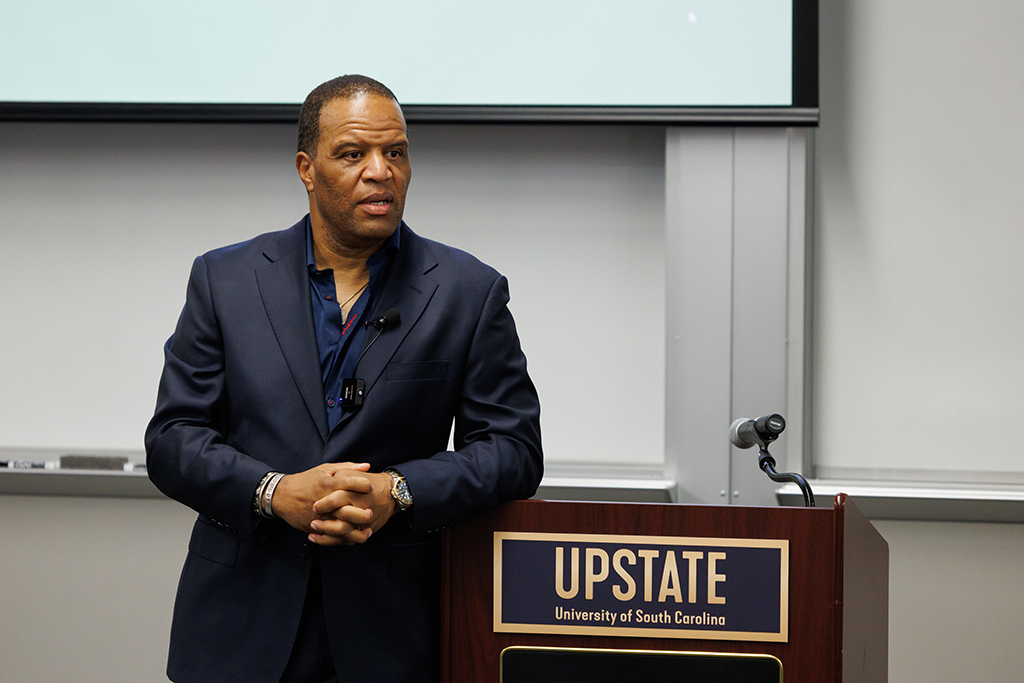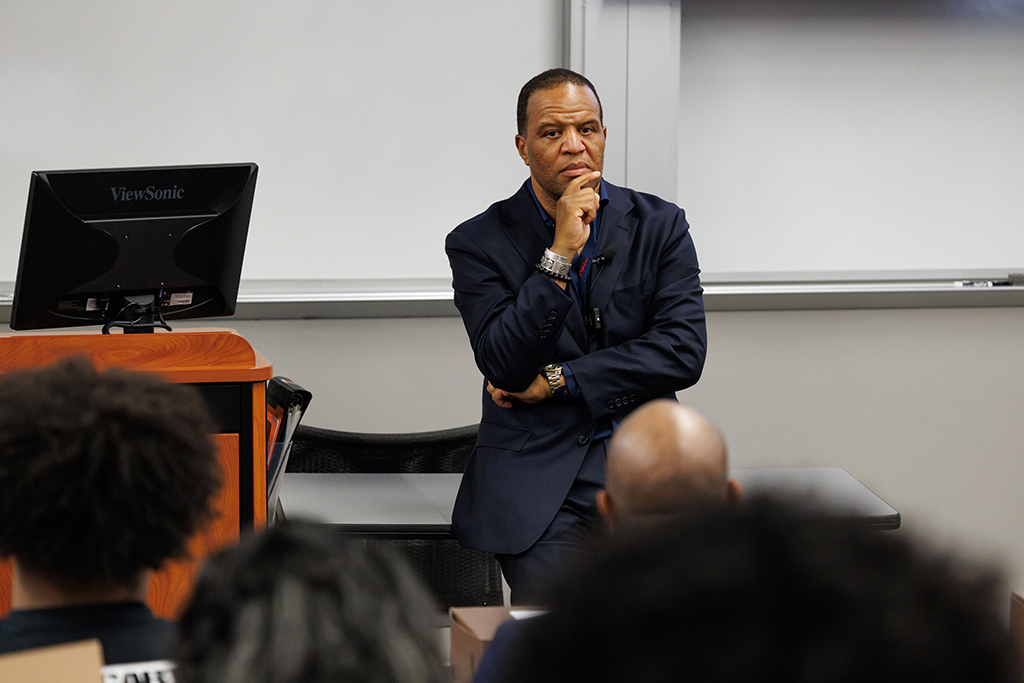
By Rich Carson, ’26 and contributors within the UMC Department
Photography by Terry Manning
Entrepreneur and Operation HOPE founder John Hope Bryant outlined the opportunities of an AI-driven future and the importance of financial literacy during a talk Wednesday, Nov. 19 at the George Dean Johnson, Jr. College of Business.
Bryant, the featured guest for this year’s Johnson Innovation Speaker Series, explored economic and social changes in America across history, emphasizing the importance of attendees lessening their distractions and instead focusing on understanding wealth and power.
Bryant spent the earlier portion of his lecture outlining what he called America’s “three reconstructions”: “freedom, access, and opportunity and ownership.” Specifically, these were the post-slavery era; the fight for access during the Civil Rights movement; and the period that defined the aftermath of the COVID-19 pandemic.
He explained understanding these cycles can help communities work together to respond to today’s economic challenges with intention rather than fear.
“I want you to become homeowners,” he said. “I want you to become small business owners. I want you to become entrepreneurs—if not literally, in mindset.”
Lessons from history can also inform how we approach today’s changes, he noted.
“The whole game has changed,” Bryant said. “You need new tools. You need new skills. What used to work for you doesn’t work anymore, but we’re still using mostly old software.”
He later discussed the impact AI will have on American lives and business.
“There’s two things you need in this new movement to future-proof yourself: AI literacy and financial literacy,” he said. “You also need your own sense of agency. AI is going to change your whole world, as you know it, by 2030.”
Bryant explained that even though major shifts in industry often begin with disruption, they ultimately generate more opportunities. He compared the AI revolution to the transition from horse-and-buggies to automobiles. Though early technological change eliminated existing jobs, he noted that entirely new sectors emerged in response.
“Your future job or your current job is not going to be replaced by AI,” Bryant said. “It’s going to be replaced by somebody who can use AI.”
The lesson, according to Bryant, is not to fear disruption, but to adapt to it. He encouraged positivity, as the changes with AI are inevitable.
“I want you to be Netflix, not Blockbuster,” he told the audience. “I want you to be Amazon and Walmart, not K-Mart and Sears. All these companies who think they’ll be around forever … Change is happening whether you like it or not.”
He also encouraged attendees to treat AI as a tool to maximize time, describing how businesses are already using automation to replace inefficient processes.

Bryant emphasized that everyone has a role to play in ensuring AI is used ethically. He argued that technology will only be as responsible as the people guiding it. He noted his work on the AI ethics council of Operation HOPE, in partnership with Sam Altman, CEO and co-founder of OpenAI. Bryant called for an intentional approach to innovation, one that is rooted in belief and faith in the process.
In his talk, Bryant also shared anecdotes from his upbringing in California that shaped his early understanding of money, survival, and entrepreneurship. He said these experiences taught him the difference between being “rich” and having wealth, and they inspired his mission to make financial knowledge accessible to all.
Along with the financial lessons Bryant shared, he encouraged the audience to lean into change, take ownership of their future, and be the kind of leaders the world will need in the future. He also advised students to find something they love, become an expert in it, and refuse to be discouraged by setbacks.
“Ignore the noise … spend 20 hours a week on anything, you’ll become the NBA player in that space,” he said. “Spend 30 or 40 hours a week on it, and you’re the Michael Jordan.”
